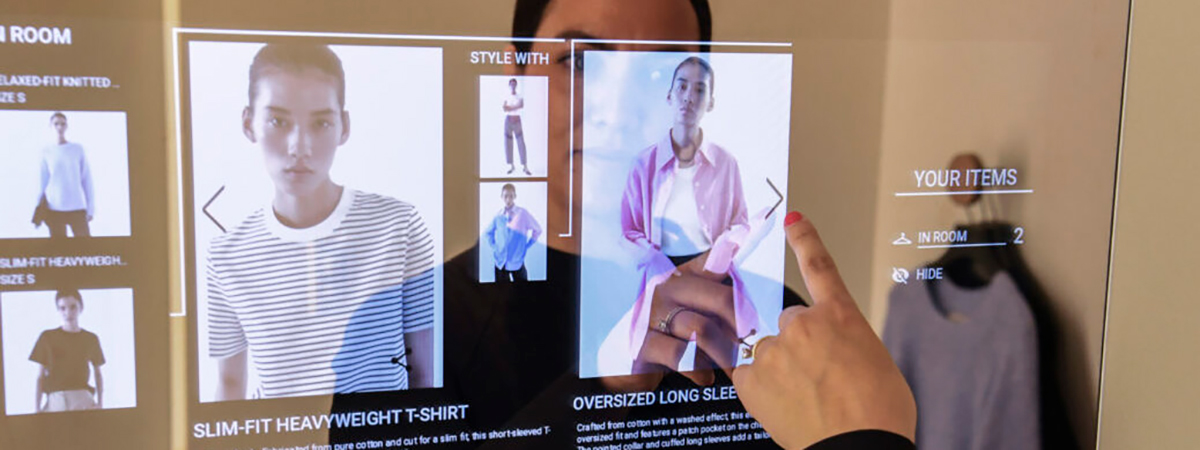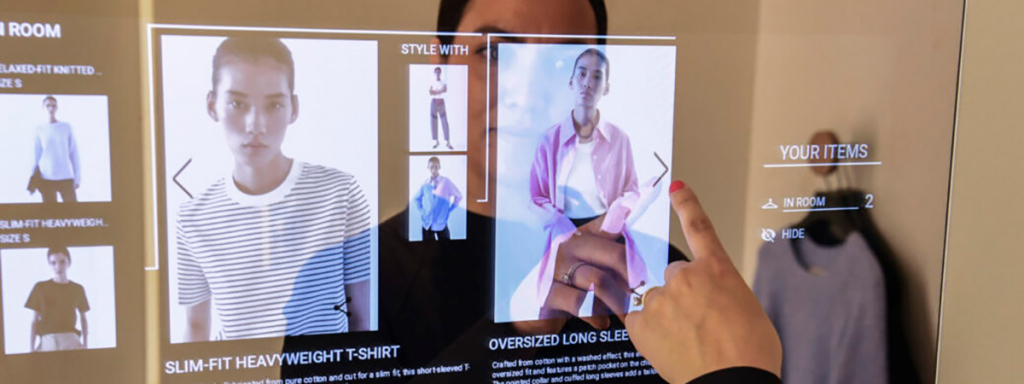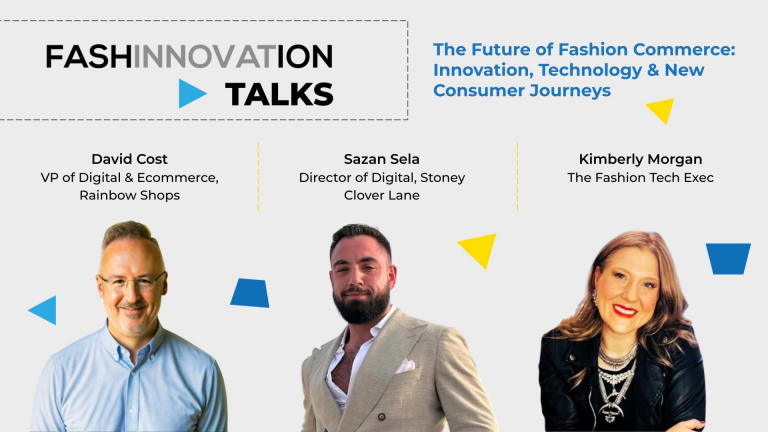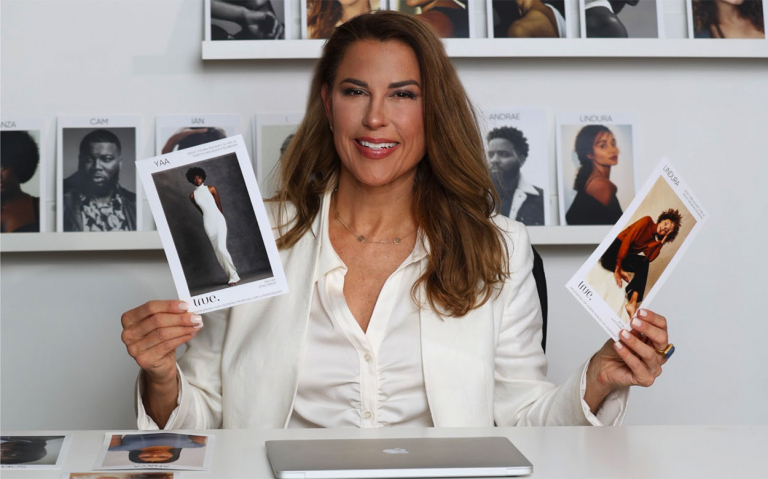In recent years, artificial intelligence (AI) has become one of the biggest topics of discussion all over the world. As the world continues to progress with the development of AI many wonder how it may influence the world of fashion.
From planning, inventory, to active consumers AI is now widely implemented into the fashion industry’s e-commerce. Whether it’s high fashion or fast fashion, AI helps consumers get the very best out of their shopping experience.
Despite this, many have worried about the possibility of AI taking away jobs. And while, the truth is there may be some truth to this AI is constantly creating new and improved job opportunities.
During Fashinnovation’s 10th Worldwide Talks Mel Lim, Chandra Subramanian, Shivani Bala, and Kimberly Morgan all gathered to speak about the effects that AI has on fashion e-commerce, the fears, and the possibilities.
To Watch the Full Panel Go Watch: https://youtu.be/2mMZwx6Y3Nc
Artificial Intelligence Fashion in E-Commerce
In the e-commerce side of the fashion industry there are three main factions that brands utilize AI for Inventory the user experience. In each, behind the scenes details AI is not taking over but enhancing productivity for brands and their workers.

When it comes to using AI in the fashion industry. Many companies use data forecasting to improve efficiency in the company.
Forecasting is a technique that uses historical data as inputs to make informed estimates that are predictive in determining the direction of future trends. From predicting customer behavior, past sales estimates, and current fashion trends. Forecasting is a formidable tool to use when ordering inventory.
Inventory
Forecasting can predict consumer behavior when it comes to what they buy and how much they buy. This can not only optimize supply chains but also help brands prepare for shipment of supplies and prepare for the market ahead. This not only helps brands grow in efficiency but also increases the speed at which consumers obtain goods.
Chandra Subramaniam CEO of the ORS Group speaks about how forecasting AI has greatly improved the speed at which consumers receive their products which is very prominently utilized within fast fashion.
While fast fashion has been the poster for unsustainable fashion it unfortunately is the main source of retail that consumers shop.With the turnover speed for new collections being at an all time high. Brands use AI to prepare for the short down time with nearly three-quarters of the retail industry planning to expand their AI infrastructure in the next 24 months.
User Experience
Aside from forecasting aiding in sales and inventory, AI can help customers before and after buying their product. Mei Lim founder of Chateauz talked about how AI has helped create an immersive shopping experience for her high fashion clients.
She states that by using data to learn about their consumer’s behavior they can find out what consumers are best engaging with and heighten those qualities to reflect the brands image.
Aside from just online shopping, however, AI can also help customers after the sales have been done. Customer service is a highly used tool for customers who have issues with their product and/or sales issues.
According to Help Scout, 64% of U.S. consumers contacted customer service and 73% of customers say they stay loyal to brands because of friendly customer service agents. With the majority of people using customer service and the customer loyalty riding on the typical 5 minute calls it is no surprise that people look towards AI for improvements.
With artificial intelligence, Shivani Bala states that customer service calls can be triaged to attend to more urgent calls by recognizing trigger words such as “really need” “tomorrow” “overcharged” and more. Meaning more dire calls can be received faster.
Aside from this the use of AI generated customer service agents before talking to real people assures that the redundant questions that get overly asked are handled quickly and efficiently.
Overall, AI has helped the efficiency of how fashion houses and brands run their company. While the world will likely never see AI take over the design aspect of fashion, AI helps to make all other aspects of the business at their most efficient.
Challenges of Artificial Intelligence in the Fashion Industry?
Trustworthy AI: Should We Trust Artificial Intelligence? – Caltech Science Exchange
One of the biggest concerns regarding AI is the potential to replace human labor. With AI capable of replacing business workers as well as marketing. There is a risk of certain lower jobs being lost.
This is a valid concern within not just the fashion industry but the economy as a whole as over 85 million jobs are projected to be lost to AI. However, Mei Lim offers some insight into how we become the masters of AI instead of AI becoming the master of us.
AI has demonstrated its ability to automate mundane tasks, thereby freeing up human resources to focus on more creative and strategic endeavors. For instance, tools like ChatGPT can streamline customer interactions and data analysis, allowing employees to engage in higher-value activities that require empathy and complex decision-making.
Moreover, AI implementation has the potential to create new job opportunities essential to the growth of artificial intelligence as well as more creative focused jobs.
Critical to this vision of using AI for support rather than replacements is the responsible deployment of AI. Lim emphasizes the importance of training AI effectively and maintaining infrastructure integrity.
Lim states that poor data quality can undermine AI systems, highlighting the need for good quality data governance and ethical considerations in AI development.
So, while AI’s capacity to replace human labor is a valid concern, Mei Lim’s perspective encourages us to view AI as a tool for augmenting human potential rather than supplanting it. By leveraging AI to enhance efficiency, creativity, and job opportunities, we can shape a future where humans remain in control, steering AI towards beneficial outcomes for the fashion industry.
Artificial Intelligence is What You Make of It
Artificial intelligence is having a significant impact on the fashion industry as it continues to spread. AI’s significance in streamlining operations and increasing customer engagement is demonstrated by its incorporation into fashion e-commerce, from inventory management to improving the user experience.
Notwithstanding worries about possible job displacement, AI also spurs the development of new, highly skilled jobs, guaranteeing that employment will continue to rise in step with technological advancements.
The knowledge that Mei Lim provided Industry heavyweights like Kimberly Morgan, Shivani Bala, Chandra Subermanian, and others stress the importance of adopting AI in a proactive manner.
Fashion organizations may achieve unprecedented levels of efficiency and creativity by utilizing artificial intelligence (AI) to automate repetitive operations and enhance human abilities. This would not only increase operational efficiency but also allow employees to prioritize innovation and customer-centric strategies.
Ultimately by embracing AI’s capabilities to bolster productivity, creativity, and job opportunities, the fashion industry can pave the way for a future where technological innovation complements and empowers human ingenuity, steering toward positive outcomes for both businesses and society at large.
Want know more about the Fashion World? Follow fashinnovation.nyc






